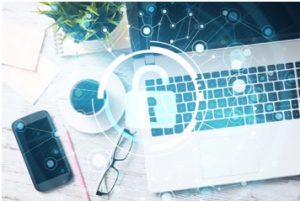If you’re one for easing your memory when it comes to online passwords (i.e your passcodes include ‘1234’ or the all too common ‘PASSWORD’) — or like me you’ve used the same password for years and don’t even bother to differentiate between websites — you may be in need of some internet security guidance. Cyber-attacks and security breaches are becoming all too common and not staying up to date on security measures and defenses leaves you and/or your business vulnerable to serious internet problems. The silver lining of the situation is that there are many things you can easily do right now to boost your defenses against hackers and the like. Here are a few helpful tips to improve your online security — they are too valuable and easy to simply ignore.
- Don’t be an idiot when it comes to passwords
This may be one of the most simple methods to improve your online security, but it is one of the least commonly used tips — remembering various complicated passwords is difficult and leaves internet users frustrated (was it a capital ‘t’? did I use a question mark?). However, having strong passwords is fundamental when it comes to internet security. Avoid using the same password for multiple sites, be sure to make them long and complex, and try to change them periodically. If you have the memory of a goldfish and struggle to remember passwords, try a password management app — but be wary that this too could leave you vulnerable as it could provide the wrong person with access to all your accounts.
- Be sure that all software is kept up-to-date
By being sure that your apps, operating systems and computer programs are properly maintained, you can help discover vulnerabilities and areas of potential weakness. Outdated software and programs are generally breeding grounds for bugs and can cause a variety of glitches — so it’s important to use the latest version. To help you out, many programs can be set to provide automatic updates or reminders to manually do so.
- Regularly update account information
When it comes to your most important accounts, it is helpful to constantly update them with any relevant changes. Be sure that your accounts include your most recent contact information — including email addresses and phone numbers. Having up-to-date information will make it easier to successfully recover an account if need be.
- Consider using two-factor authentication for your most important accounts
Many services like Facebook, Twitter, iCloud, Gmail and Dropbox have the option to add a second factor of authentication. Two-factor authentication has proven to be successful at preventing identity theft and hacking attacks in scenarios where login credentials are compromised — an effective and easy measure to improve online security.
- Use caution when it comes to untrusted networks
While it seems innocent enough, connecting to networks in places such as cafes and libraries may leave devices vulnerable to cyber attacks. When one connects to what they assume to be the WiFi of their public location, it may actually be rogue network that could have adverse consequences. It is important to be sure that the connected network is one that is trustworthy — especially if you’ll be making purchases or accessing your online banking details.
- Use a secure browser when online
As your browser is your main gateway to the internet, you should be sure that you’re using it safely and properly. Browser vulnerabilities make for easy access points for cyber criminals and can be used to steal your private data (passwords, usernames, financial details). Use the latest version of your browser, stay up-to-date on security updates, use appropriate security settings, and make use of a private browsing session when on an untrusted website.
- Be smart
Simply put, just use common sense when using the internet. Avoid posting private and personal information on your social media accounts, don’t share passwords with friends and co-workers, and always remember to logout from online accounts (especially when in public locations). To fully understand your risks and vulnerabilities, it’s helpful to be aware of the latest scams and threats. Additionally, if you suspect that an email, website, or link could pose a threat, don’t open it or click on it!
This list allows you to make changes that will substantially improve your online security — and all of them can be accomplished in just a matter of minutes. While it is nearly impossible to protect yourself against all types of cyber attacks, after incorporating some of these tips here you should quickly begin to feel more secure when it comes to your digital life.
Cheryl Chandola
Director, Editing and Testing, ReadPlease.com
Cheryl conducts hands-on reviews and extensive testing of products as well as manages the editorial and testing teams at ReadPlease.com. In her spare time, she runs an ecommerce store and loves spending time with her daughter and dog, Blue.
